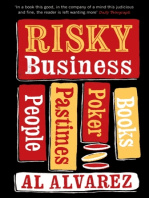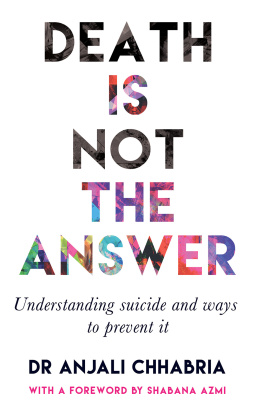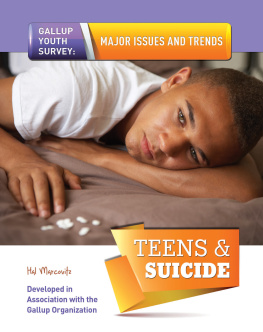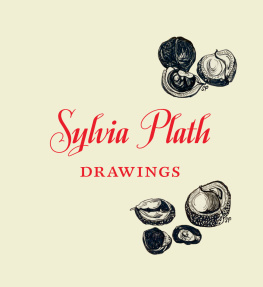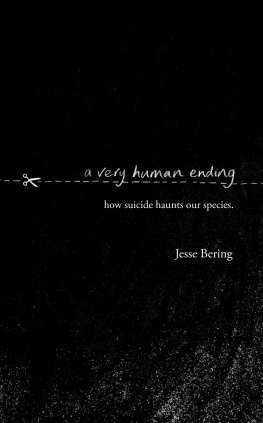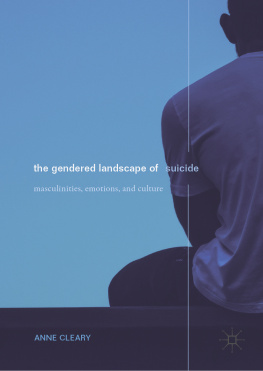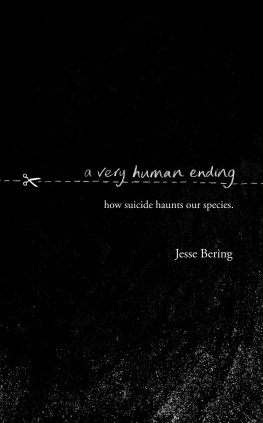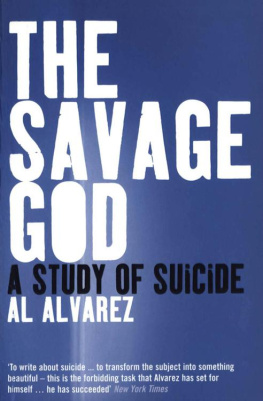Al Alvarez is a poet, novelist, critic, anthologist, and
author of many well-known books of non-fiction
including The Biggest Game in Town, Life After
Marriage, Feeding the Rat, Poker: Bets, Bluffs and
Bad Beats and his autobiography, Where Did It All
Go Right? He edited the influential Penguin anthology
The New Poetry and was advisory editor of the
Penguin Modern European Poets series.
He lives in London.
General
Under Pressure: The Writer in Society: Eastern Europe and the USA
Life After Marriage: Scenes from Divorce
The Biggest Game in Town
Offshore: A North Sea Journey
Feeding the Rat: Profile of a Climber
Rain Forest (with paintings by Charles Blackman)
Night: An Exploration of Night Life, Night Language,
Sleep and Dreams
Poker: Bets, Bluffs and Bad Beats
Novels
Hers
Hunt
Day of Atonement
Poetry
Lost
Penguin Modern Poets, No. 18
Apparition (with paintings by Charles Blackman)
Autumn to Autumn and Selected Poems 1953-76
New and Selected Poems
Criticism
The Shaping Spirit (US title: Stewards of Excellence)
The School of Donne
Beyond All This Fiddle: Essays 1955-1967
Samuel Beckett
Anthologies(editor)
The New Poetry
The Faber Book of Modern European Poetry
Bloomsbury Publishing, London, New Delhi, New York and Sydney
First published in Great Britain in 1971 by Bloomsbury Publishing Plc
50 Bedford Square, London WC1B 3DP
www.bloomsbury.com
This electronic edition published in 2013 by Bloomsbury Publishing Plc
Copyright A. Alvarez 1971
The moral right of the author has been asserted
All rights reserved
You may not copy, distribute, transmit, reproduce or otherwise make available this publication (or any part of it) in any form, or by any means (including without limitation electronic, digital, optical, mechanical, photocopying, printing, recording or otherwise), without the prior written permission of the publisher. Any person who does any unauthorised act in relation to this publication may be liable to criminal prosecution and civil claims for damages.
A CIP catalogue record for this book is available from the British Library
Sections of this book have appeared in New American Review, the Atlantic Monthly, Partisan Review, the Listener, the Observer and Handbook for the study of a Suicide, edited by Seymour Perlin.
The author and publishers are grateful to the copyright owners of the following works for their permission to quote from them: Ariel (published by Harper & Row) and The Colossus (published by Alfred A. Knopf) by Sylvia Plath, copyright Ted Hughes 1965 and 1960; An Essay in Autobiography by Boris Pasternak, Collins Publishers; The Less Deceived by Philip Larkin, copyright The Marvell Press 1955, 1971; The Collected Poems of W.B. Yeats, Macmillan.
eISBN 978-1-4088-4276-8
Visit www.bloomsbury.com to find out more about our authors and their books
You will find extracts, author interviews, author events and you can sign up for newsletters to be the first to hear about our latest releases and special offers
To Anne
After us the Savage God
W. B. YEATS
The God Tezcatlipoca, he was considered a true god, invisible, able to enter everywhere, in the heavens, on earth and into the place of the dead. It was said that when he was upon earth he incited people to war, created enmity and discord and caused much anguish and disquiet. He set people against one another so that they made wars, and for this reason he was called the enemy on both sides.
He alone understood how the world was governed, and alone gave prosperity and riches, and took them away at will; he gave riches, prosperity and fame, courage and command, dignities and honour, and took them away again as he willed. For this he was feared and reverenced, for it was within his power to raise up or cast down.
SAHAGUN: History of the Things of New Spain
When I was at school there was an unusually sweet-tempered rather disorganized physics master who was continually talking, in a joky way, about suicide. He was a small man with a large red face, a large head covered with woolly grey curls and a permanently worried smile. He was said to have got a First in his subject at Cambridge, unlike most of his colleagues. One day at the end of a lesson, he remarked mildly that anyone cutting his throat should always be careful to put his head in a sack first, otherwise he would leave a terrible mess. Everyone laughed. Then the one oclock bell rang and the boys all trooped off to lunch. The physics master cycled straight home, put his head in a sack and cut his throat. There wasnt much mess. I was tremendously impressed.
The master was much missed, since a good man was hard to find in that bleak, shut-in community. But in all the hush and buzz of scandal that followed, it never occurred to me that he had done anything wrong. Later, I had my own long run-in with depression and began to understand, I thought, why he had opted for such a desperate way out. Shortly after that, I got to know Sylvia Plath in that extraordinary creative period which preceded her death. We used to talk about suicide at times but coolly, as a subject like any other. It was only after she took her life that I realized that I knew almost nothing about the act, despite the large claims to understanding I had been privately making to myself for so long. This book is an attempt to find out why these things happen.
It begins with a memoir of Sylvia Plath, not simply as a tribute to her, since I think she was one of the most gifted writers of our time, but also as a matter of emphasis. I want the book to start, as it ends, with a detailed case-history, so that whatever theories and abstractions follow can somehow be rooted in the human particular. No single theory will untangle an act as ambiguous and with such complex motives as suicide. The Prologue and Epilogue are there as reminders of how partial every explanation must always be. So I have tried to chart the shifts and confusions of feeling which led up to Sylvias death as I understand them, and as objectively as I am able. From this one instance I have followed the subject where it has led into less personal areas.
It has proved a long trail. When I started I innocently thought that not much had been written about suicide: a beautiful philosophical essay by Camus, The Myth of Sisyphus, a great authoritative tome by Emile Durkheim, Erwin Stengels invaluable Penguin handbook, and an excellent, but out of print historical survey by Giles Romilly Fedden. I soon found I was wrong. There is a huge mass of material on the topic and it grows larger every year. Yet little of it is of much interest to anyone except the specialist, and even less has to do with what the layman personally knows of suicide. The socialogists and clinical psychiatrists, in particular, have been peculiarly unstoppable. Yet it is possible in fact, easy to plough through almost any of their innumerable books and articles without once realizing that they are concerned with that shabby, confused, agonized crisis which is the common reality of suicide. Even the psychoanalysts seem to avoid the topic. It gets into their work mostly by the way, while discussing other things. There are a few notable exceptions whom I duly acknowledge later but to a large extent I have had to piece together the psycho-analytic theory of suicide as best I could, from the point of view of an interested outsider who is not in analysis. All that is in Part III. But anyone who wants a full survey of the facts and statistics of suicide and a rsum of the current state of play in theory and research should go to Professor Stengels lucid and sympathetic study,


